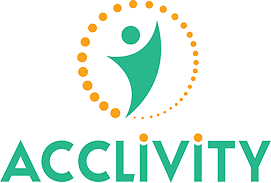Culture is not stagnant. If you work in higher education for a while, you will see the changes in your workplace. Likewise, if you move schools, or even departments, you will certainly notice a difference. Careers in higher education are being greatly impacted by the changing workplace. In order to successfully navigate the work environment, you need to understand the culture and its impact on your career.
What is Culture?
In short, organizational culture is the way things are done. It defines what proper behaviors are for the environment and distinguishes between what should and should not be said or done.
Its Role in Higher Education
In higher education work environments, there are a variety of ways the culture can play out. Some workplaces thrive in a team environment, while others focus more on individualism. Some organizations are more entrepreneurial and willing to try new things, while others prefer sticking with the status quo. Others value a results-orientation and it matters little how those results are achieved. These are just a few examples of different types of working environments that may be found within higher education.
Its Impact on Employee Development
When it comes to employee development, the culture of the workplace will have a significant impact on the types of activities engaged in or encouraged. Since it dictates the behavioral norms that are practiced, this will greatly impact the employee development process. For example, if the environment supports collaboration, employees may have a multitude of opportunities to collaborate with colleagues as a form of employee development. Newer hires may be paired with more experienced employees in a mentoring relationship. This is one way employee development can be undertaken.
Likewise, a working environment that is entrepreneurial driven will likely provide a plethora of opportunities for employees to learn, grow, and experiment without an assurance of success. Since the culture dictates that ambiguity is acceptable and can lead to new, innovative ideas, the employee development opportunities will foster such an environment as well.
While the working environment can positively impact employee development, it can also have negative ramifications as well. Some negative aspects of culture within higher education can center around the treatment of adjunct faculty and minorities including females or African American scholars. Such underrepresented groups may find development opportunities limited, especially if the opportunities are by invitation only type groups where participants are hand selected.
If your workplace is not offering sufficient developmental opportunities, working with an academic coach can be a worthwhile endeavor. If you are interested in learning more about working with Dr. Hill, click here to schedule your call.
This is a great opportunity for underrepresented groups, including adjunct faculty or a Blackademic, to enhance their careers in higher education and advance to greater roles in academia.
While the working environment will significantly impact the developmental opportunities presented to you, you do not have to stop there. Advocate for yourself by working with a career coach.

